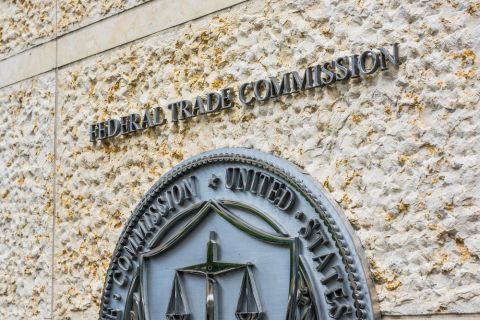Oil prices soared again on March 3 as the Ukraine war sparked a run on commodities that raised fears of “stagflation” and stocks on Wall Street and in Europe fell as investors hoped central banks will be prudent as they move to tighten monetary policy.
The fresh surge in energy prices heightened worries about the European economic outlook, leading the euro to slide to its lowest level in almost six years against Britain's pound and pinning it near 21-month lows versus the dollar.
Brent crude futures, the international benchmark for oil, climbed to within 16 cents of $120/bbl before paring gains on signs of progress toward removing remaining issues blocking a revival of the 2015 Iran nuclear deal.
The price of aluminum, copper and nickel rushed to fresh highs as the widening sanctions on Russia for its invasion of Ukraine threatened to further disrupt the flow of commodities from one of the world's major producers.
“Markets are trying to recalibrate what the Fed will do and its views on inflation,” said Jeff Mortimer, director of investment strategy at BNY Mellon Wealth Management, adding that Jerome Powell is proving to be a pragmatic chair of the Fed.
“To us it’s how to get a handle on what’s inflation going to be six, nine, 12, 15 and 18 months from now. That is really the critical question that we really are trying to answer.”
U.S. stock indexes initially rose, extending a rally on March 2 after Powell pointed to a cautious tightening due to uncertainly driven by the Ukraine conflict. But they later fell.
The Dow Jones Industrial Average fell 0.57%, the S&P 500 lost 0.76% and the Nasdaq Composite dropped 1.41%.
In Europe, the pan-regional STOXX 600 index lost 1.83%, while MSCI’s gauge of stocks across the globe shed 0.79%.
U.S. and German government bond yields retreated as investors eyed potential monetary tightening. Money markets in Europe are now pricing in a 95% chance of a 30 basis-point hike in interest rates from the European Central Bank by year-end.
The yield on 10-year Treasury notes fell 2.8 basis points to 1.837%.
Germany’s 10-year government bond yield, the benchmark of the bloc, rose 0.9 basis point (bps) to 0.019%.
Bond yields have whipsawed violently this week as investors try to gauge the sanctions imposed on Russia due to the Ukraine invasion against expectations central banks will need to raise rates to address stubbornly high inflation.
Everything from coal to natural gas and aluminum are surging as Western nations tighten sanctions on Russia following its invasion of Ukraine. Russia calls its actions a "special operation". Read full story
“Russia supplies around 30% of Europe’s gas and oil imports and accounts for around 11% of world oil production,” said Shane Oliver, head of investment strategy at fund manager AMP. “In short, investors are worried about a stagflationary shock.”
Three-month nickel on the London Metal Exchange (LME) rose to its highest since April 2011,
U.S. crude fell 1.34% to $109.12/bbl and Brent was at $111.84, down 0.97% on the day.
MSCI added to Russia’s financial isolation by deciding to shut the country out of its emerging markets index, while FTSE Russell said Russia would be removed from all its indices.
Fitch slashed Russia’s sovereign credit rating six notches to “junk” status, saying it was uncertain the country could service its debt, and Moody’s soon followed.
In Asia, the rush to commodities lifted resource-rich Australian stocks 0.49%.
Overnight in Asia, Japan's Nikkei managed a 0.7% gain, while MSCI’s broadest index of Asia-Pacific shares outside Japan nudged up 0.39%.
In currency markets, the dollar index rose 0.479%, with the euro was down 0.67% at $1.1046.
The yen weakened 0.07% to 115.60 per dollar.
Recommended Reading
Patterson-UTI Braces for Activity ‘Pause’ After E&P Consolidations
2024-02-19 - Patterson-UTI saw net income rebound from 2022 and CEO Andy Hendricks says the company is well positioned following a wave of E&P consolidations that may slow activity.
E&P Earnings Season Proves Up Stronger Efficiencies, Profits
2024-04-04 - The 2024 outlook for E&Ps largely surprises to the upside with conservative budgets and steady volumes.
Exxon Mobil, Chevron See Profits Fall in 1Q Earnings
2024-04-26 - Chevron and Exxon Mobil are feeling the pinch of weak energy prices, particularly natural gas, and fuels margins that have cooled in the last year.
Sunoco’s $7B Acquisition of NuStar Evades Further FTC Scrutiny
2024-04-09 - The waiting period under the Hart-Scott-Rodino Antitrust Improvements Act for Sunoco’s pending acquisition of NuStar Energy has expired, bringing the deal one step closer to completion.
Kimmeridge Fast Forwards on SilverBow with Takeover Bid
2024-03-13 - Investment firm Kimmeridge Energy Management, which first asked for additional SilverBow Resources board seats, has followed up with a buyout offer. A deal would make a nearly 1 Bcfe/d Eagle Ford pureplay.




